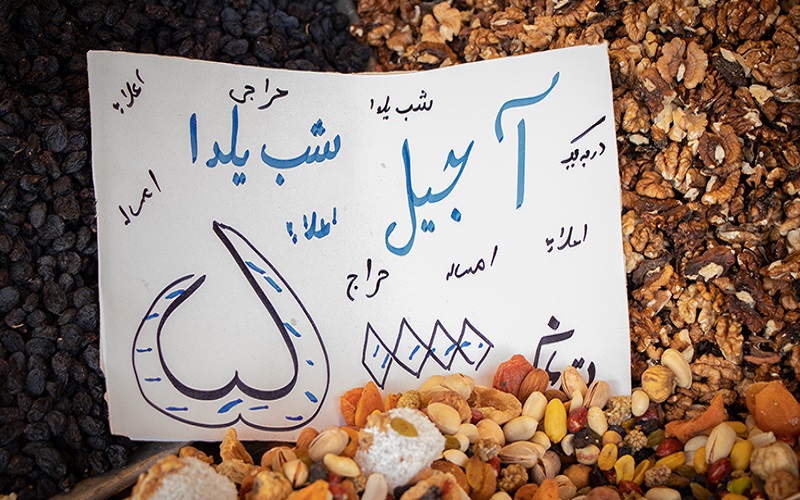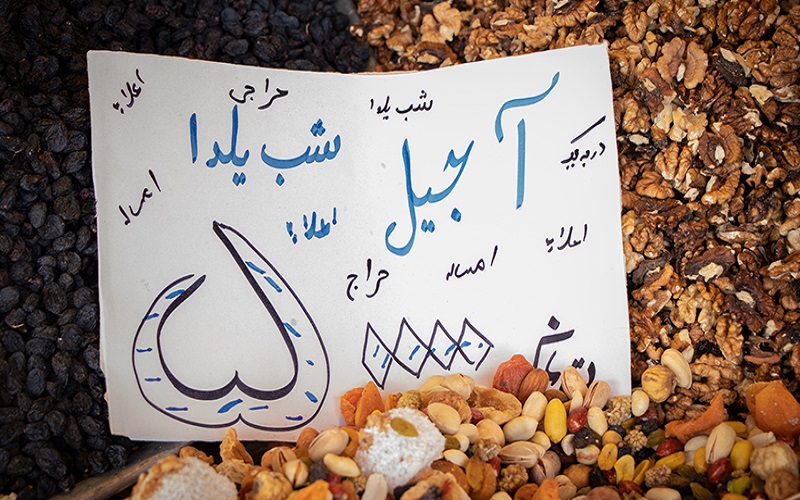
December 21 marks one of Iran’s oldest celebrations, the festival of Yalda to mark the winter solstice which is the ‘longest and darkest night of the year’. Originally stemming from a Zoroastrian tradition during which customs of the festival were practiced by families to protect them from evil during the long night.
Tradition dictates that people should stay awake most of the night to ward off misfortune and gather in the safety of groups of relatives and friends to share the remainder of the fruits from the summer and pass the night together. The Shahnameh, a poem by the 11th century Persian poet Ferdowsi is read by the eldest members of the family and fortunes are told from the Divan-e-Hafez, a collection of poems by the 14th century poet, Hafez.
Iranians are preparing to open their homes to guests and to entertain them with various fruits and winter snacks. But unfortunately, the ruling clerics have created the worst living conditions for Iranians.
As food plays a central role in the celebrations these days, across Iran families come together to celebrate together and enjoy a fine dinner. Before alcohol was banned in Iran when it became an Islamic republic ran by the theocratic regime, drinking wine was also part of the celebrations. However, due to poverty and the skyrocketing prices of the food items needed for Yalda, Iranians can no longer celebrate their long-standing traditions.
According to Mostafa Darajenejad, the head of the (Fruit and Vegetable) Market Traders’ Union, compared to last year, the price of a variety of fruits has risen by between 60 and 70 percent. This huge increase has had a major effect on Iranian families who, due to the worsening financial crisis in Iran, can barely afford to buy fresh fruit and vegetables from the local markets.
Social pathologist, Mohammad-Reza Mahboubfar has stated that the poverty crisis in Iran is so severe that people who were formerly part of the Iranian middle class are falling below the poverty line on a daily basis.
The government’s budget bill for next year will only see a 10% increase in employee salaries and the regime is gearing up to eliminate the government currency rate which was 4,200 tomans to the dollar. The actual market rate is a little over 30,000 tomans. These and other issues will undoubtedly lead to an inevitable socio-economic collapse next year.
Mahboubfar also explained how if the Vienna talks to revive the 2015 nuclear deal fails, the currency exchange of the toman would fall even further, increasing poverty and inequality across Iran. Currently, the poverty line sits at 10 million tomans, but within days is set to rise to between 12 and 16 million tomans, further widening the gap between the upper and lower classes of society.
The socio-economic crises in Iran will only lead to an exacerbation of the problems they have brought about, as well as an increase in the regime’s corruption and the levels of crime. Iranian people across the country have reached their tolerance level and will no longer stand for the misdeeds that the Iranian regime have done. Many people have lost all hope for the future as they fall deeper and deeper into poverty.
They cannot be silenced with empty promises and are like a volcano that is ready to explode. They can revolt at any moment and quickly expel the regime from Iran to establish a democratic government.
